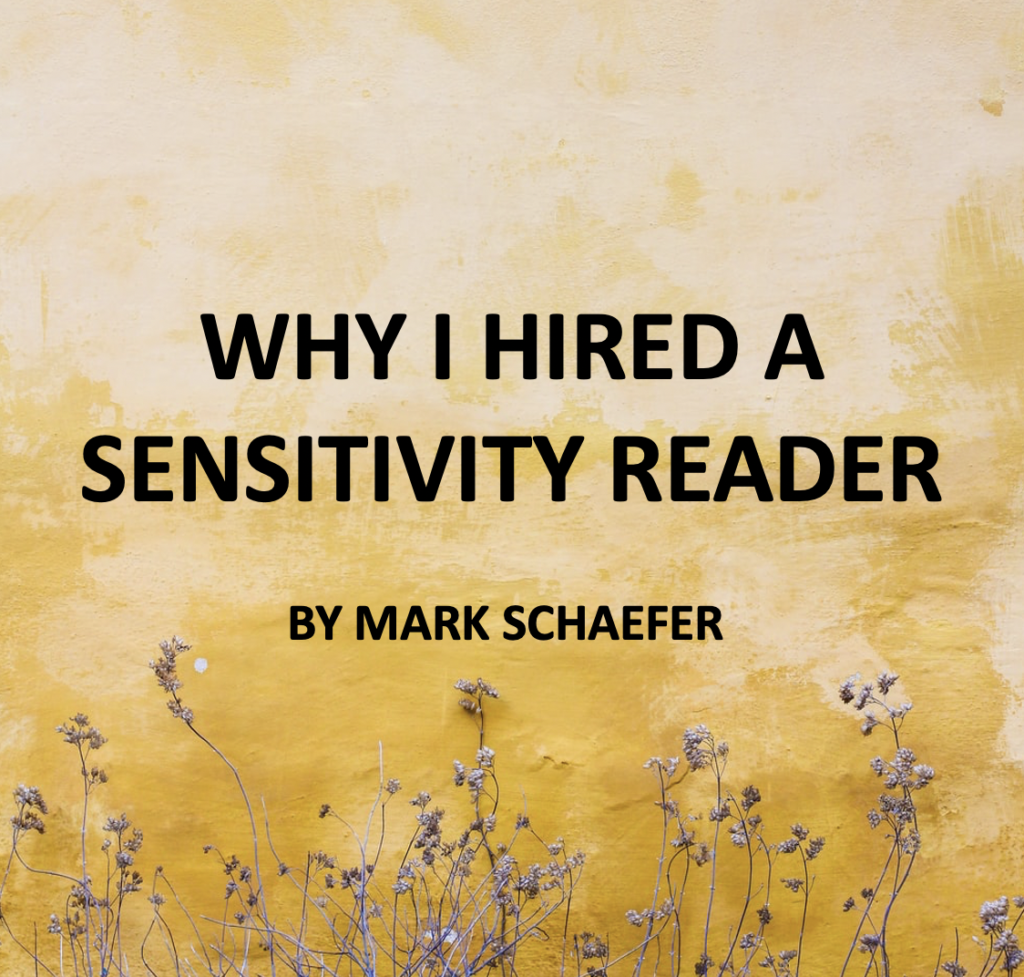
I have written nine books and with each project, I grow and learn in extraordinary ways. I research, study, and write for two years. It’s like getting a new degree.
Since I have a smart global audience, it’s important for me to always write in a manner that is clear and respectful to a diverse group of business professionals. I work so extremely hard on my books and I never want to see a review that says, “Mark is a great writer but the big dummy forgot about XYZ …”
So to make sure my work is thorough, complete, and relevant to a global fanbase, I send my manuscript to “beta readers” who look at my book through different lenses. Before I published my last book, I sent a draft to:
- Two different subject matter experts to make sure I didn’t miss something obvious.
- A university marketing professor to assure my research was complete and appropriate.
- A European editor to view the content from a non-US perspective.
- A final editor to scour the book with detailed fact-checking and polished editing.
This quality control process involves a lot of time and expense but it helps guarantee that I am delivering the finest possible book to my readers. My book is part of a legacy. So, it has to be the best it can be.
That’s why for my new book Cumulative Advantage, I added one more set of eyes to the process. I hired a sensitivity reader.
Adjusting to a changing world
A sensitivity reader is a person who reviews unpublished manuscripts with the purpose of spotting cultural inaccuracies, representation issues, bias, stereotypes, or problematic language.
By merely mentioning the idea of a “sensitivity reader” I guarantee you I will get hate mail. For some, this act is a nod to “overly-sensitive liberal notions that have gone too far and a cancel culture.” (An actual past reader comment.)
And, they are wrong. This is just good business sense.
If you’ve followed me through my career, you know that I have bold opinions. Sometimes these views fly in the face of conventional wisdom. It’s OK to attack problems. It’s not OK to attack people. If I unintentionally offend somebody just because I’m sheltered, uninformed, or accidentally insensitive … well, that’s just being lazy. What professional writer would want to be in the position?
It might surprise you that I refer to myself as “sheltered.” I’m a person who travels the world, reads extensively, and teaches at a university. And yet I am in a bubble. We all are. There is no way I can keep up with cultural nuances and shifts happening in America, let alone my global audience – less than 50 percent of my readers are in the U.S.!
Creating informed and complete content just makes excellent business sense.
The business case for a sensitivity reader
Why would I hire a sensitivity reader? There are several important reasons.
- First, anything written in 2020 and published in 2021 has to be judged within the context of a pandemic, civil unrest, political upheaval, and economic turmoil. That’s a lot. I wanted my work to be intensely relevant.
- Second, the topic of my book goes down some uncomfortable cultural rabbit holes. It was a big risk for me and I had to get it right.
- And finally, I want to write in a way that is tolerant and respectful to the best of my ability. And the best of my ability means getting help when I need it.
Taneasha White
So I hired Taneasha White as an important new set of eyes, and a teacher to help me navigate a changing world. One of the cool things about Taneasha is that she is not only a skilled editor, she is also a poet. So all of her feedback to me was rather … lovely.
Thankfully, Taneasha didn’t find anything egregious in my writing but her counsel was always wise and helpful. She might tell me that a certain word has two meanings today (I had no idea!) or that I could have done a better job in a section of the book by having more diverse representation.
The primary value is that her help gave me a new level of confidence that I was publishing a book that was connected, relevant, and appropriate to my diverse global audience.
So not only was this the right thing to do, it was the smart business decision, too. I plan to make this investment in future publications.
I realize this is a new idea to many, so if you have any questions or observations, please share them in the comment section and I’ll try to answer them.